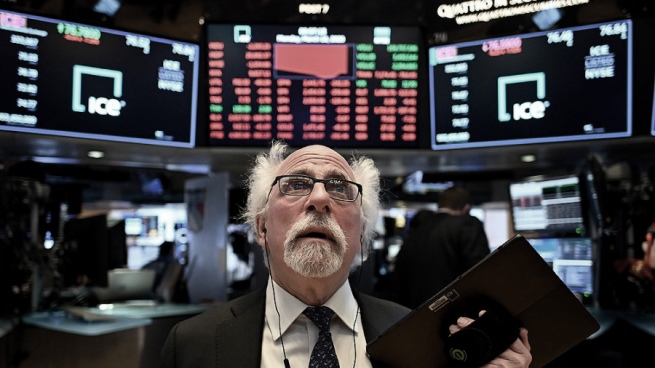The New York Stock Exchange closed sharply lower, marking another dark week and very close to its lowest levels of the year, dragged down by fears of a recession.
Wall Street extended setbacks and scored four consecutive days for oblivion. The rise of 75 basis points in the FED reference rate validated the contractionary approach that the president of the Central Bank, Jerome Powell, had anticipated in his last previous public appearanceand deepened fears of seeing a bigger-than-expected recession
A) Yes, the Dow Jones set a new low for the year and bounced slightly to close with a loss of 1.62%while the technological Nasdaq lost 1.80% and the broader S&P 500 fell 1.72%.
What happened in the New York stock market had an effect on markets around the world, and the Buenos Aires stock market was no exception: The S&P Merval index fell 4.38%, accumulating a drop of 1.93% in the week, while the papers of Argentine companies on Wall Street (ADR’s) ended the session with most results in red, with falls of up to 9%, in the case of YPF, while bonds in dollars ended the week with a 7% decline.
“What you see in today’s market, as the saying goes, like a ‘sell now, ask questions later’ trend, is just that: increasing cash in the face of heightened uncertainty and volatility,” says Quincy Krosby of LPL Financial. .
The drop comes after the Fed raised interest rates by 0.75 percentage point on Wednesday, the third consecutive hike of this magnitude, and Powell stressed that he was determined to continue with monetary tightening to counter inflation.
The decision led to rate hikes from the Bank of England, among other central banks, on Thursday, boosting the chances of a global recession.
In this context, the world’s investors are shedding their assets and jumping into liquidity, at a time when their confidence is at the worst level since the 2008 financial crisis, according to Bank of America.
In the first three days of this week alone, $7.8 billion was withdrawn from global equity assets, according to the report, which cited data from EPFR, a firm that provides information on fund flows.
In that same period, US$ 6.9 billion of bonds and US$ 400 million of gold were withdrawn, while the “cash” had entries for US$ 30.3 billion.
This, for the group of strategists of the Bank of America, is due to the fact that confidence among investors is “unquestionably” at the worst level since the 2008 crisis and, as a reflection of this, they consider that money, commodities and volatility generate higher returns than bonds and stocks.
In the old continent, the main European stock markets ended Friday’s session with sharp declines, given the signs of economic recession in the euro zone and the tightening of central bank monetary policy.
The Paris stock market fell 2.28%, its lowest closing level for a year and a half; Frankfurt fell 1.97%, its lowest level since November 2020. For its part, London fell 1.97%, Milan, 3.36% and Madrid, 2.46%.
Private activity in the Eurozone contracted for the third consecutive month during September, affected by inflation, according to preliminary data from the Purchasing Managers’ Index (PMI) published by the rating agency S&P Global.
The index, based on data provided by manufacturing and service companies, marked 48.2 points in August, heightening fears that this will translate into a recession.
This is its lowest level in the last twenty months and a drop compared to the 48.9 points it had registered in August, 49.9 in July and 52 in June.
After a strong recovery due to the lifting of health restrictions, the continent was affected by an acceleration in inflation, first of all, due to difficulties in supply chains, a factor that later lost ground in the face of increases in the cost of energy and food, which have had an impact on purchasing power and demand.
In the case of the 19 countries of the Eurozone, annual inflation in August was 9.1%, a historical record, in an acceleration that has boosted the European Central Bank (ECB) to order its biggest interest rate hike in its history –by 75 points- at the beginning of this month.
For their part, among the countries, Germany and France, the two main economies in the euro area, do not escape the trend.

















